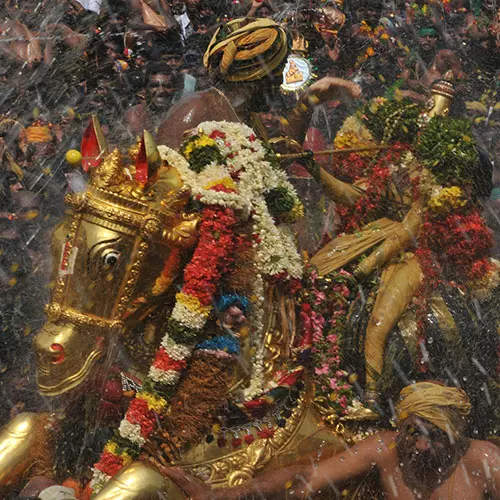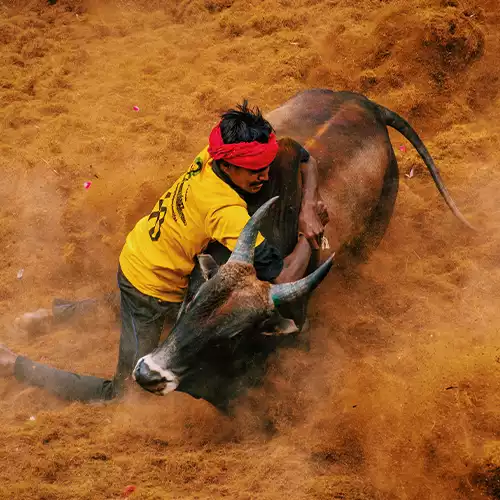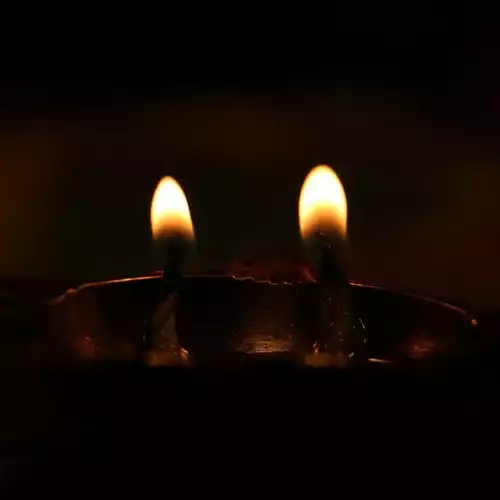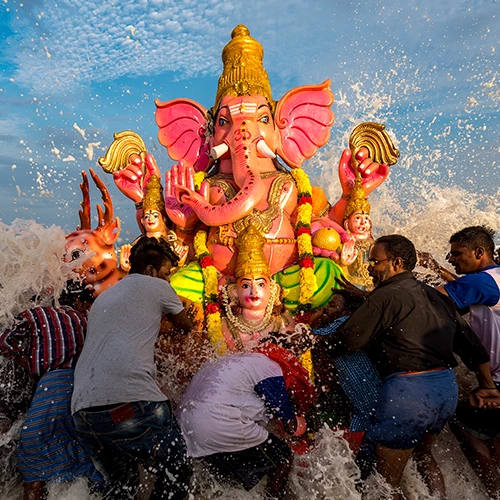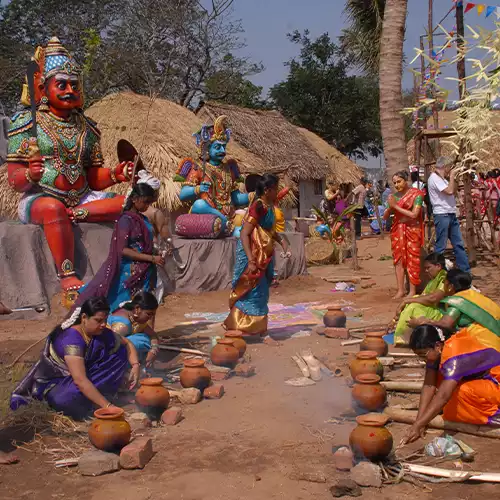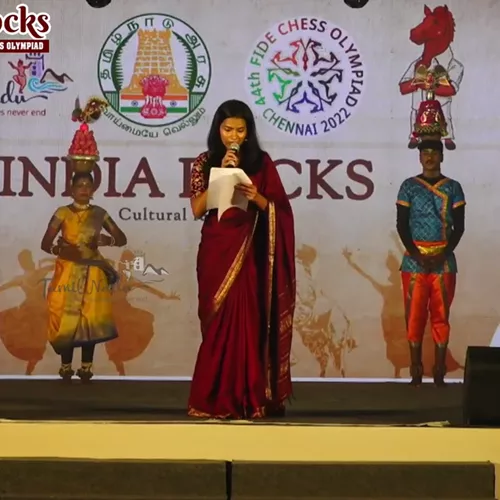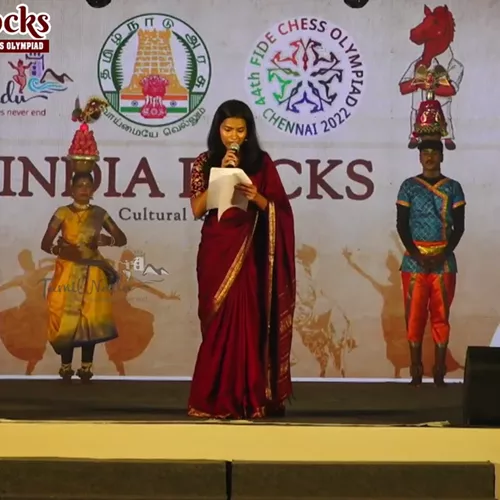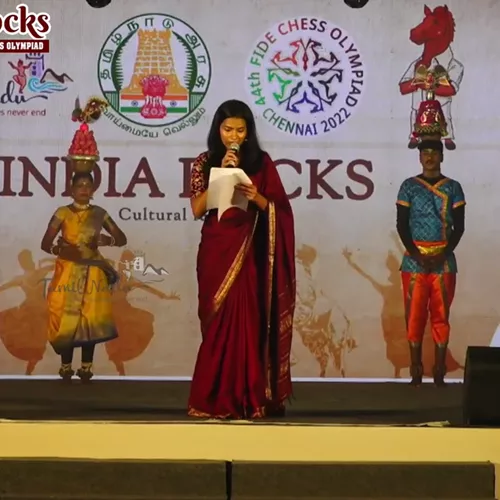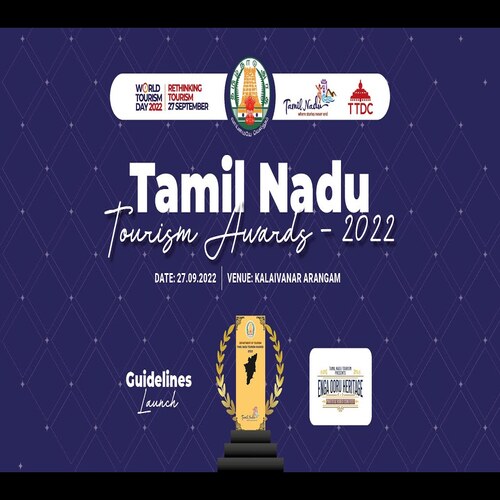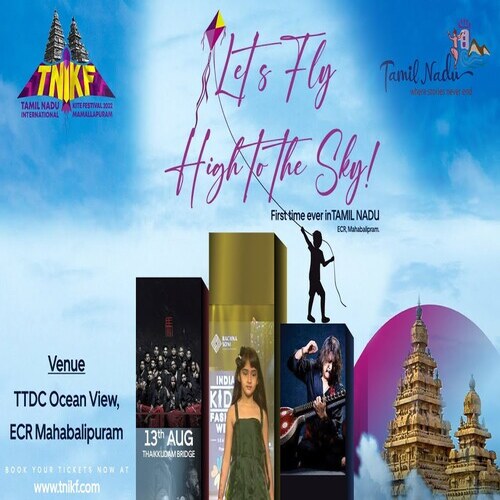If you happen to be in Tamil Nadu by mid-January, and see places squeaky clean, people all decked up in new clothes and ordering fresh belongings, animals smeared with sandalwood paste and cleaned up, do not be surprised. The state is getting ready to celebrate its much awaited Pongal festival.
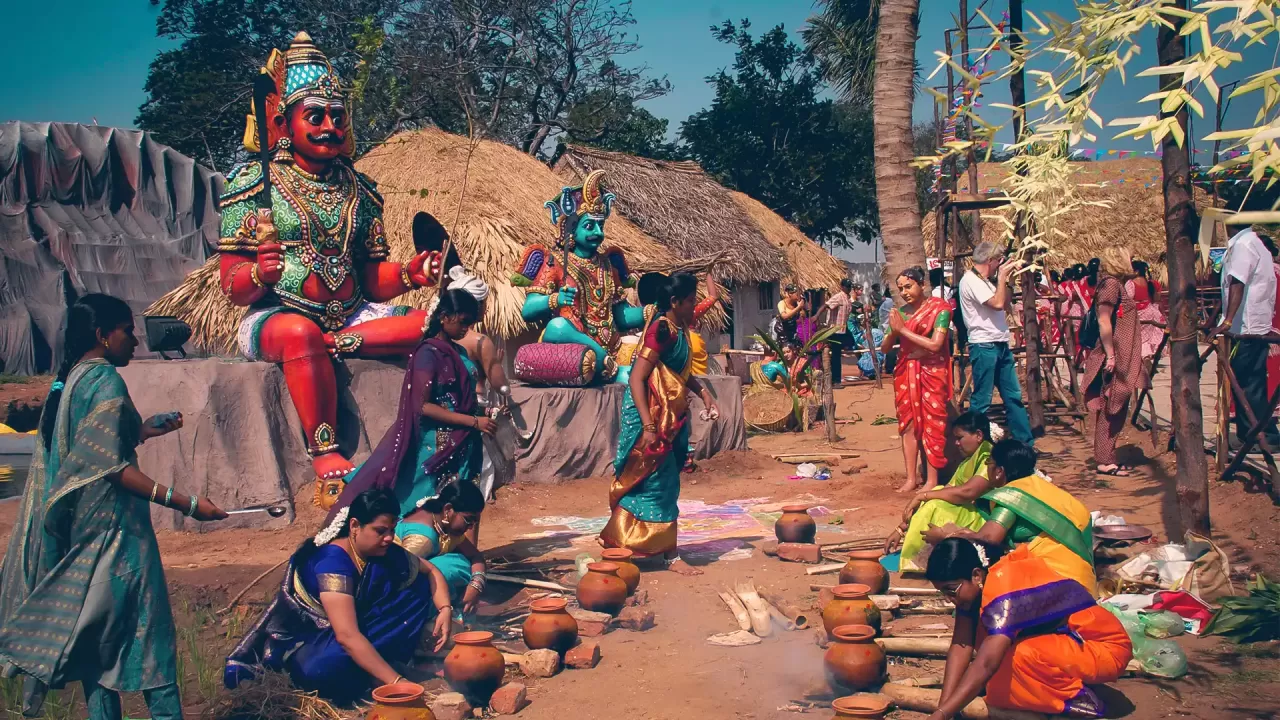
January is a special month as it opens the window to a new and fresh year. It is even more special for the people of Tamil Nadu as they welcome their harvest festival, Pongal. The four-day event that is dedicated to the Sun God marks the Sun’s journey northward, Uttarayan. Pongal is usually celebrated between 13 and 16 January. The four days - Bhogi Pongal, Thai Pongal, Mattu Pongal and Kaanum Pongal - have their separate significance. Thai Pongal on January 14 corresponds with the Makar Sankranti, the harvest festival that is celebrated across India under various regional names.
People discard their old materials and replace them with new items on Bhogi day. Sun God is worshipped on Thai or Surya Pongal day. Kolams or decorative patterns are drawn at the entrance of the house. Thai Pongal also marks the beginning of the Tamil auspicious month, Thai as per the Tamil solar calendar. The cattle or ‘maatu’ is worshipped on the Maatu Pongal day. People show their veneration to the work they do on the farmlands. The cattle look more beautiful with polished horns, and they are made to wear flower garlands, beads and bells. Families get together on the fourth or Kaanum Pongal Day to have a grand meal. Mayilattam and Kolattam – the traditional folk dances - are performed on this day. Jallikattu (a game involving bulls), vazhukku maram (slippery pole), mallar kambam (a mix of gymnastics and yoga), Uri Adithal (breaking a hanging mud pot, blindfolded), and Kabaddi (a team sport). Pongal Mela or fairs exhibit and sell sarees, ethnic jewellery, handicrafts, and pottery.
In Tamil, Pongu means ‘to boil over' and it is from this term that Pongal was derived. A sweet dish - Pongal - which is a mixture of new rice, along with milk, jaggery, and cardamom is prepared in a pot during these festive days. The overflow of the milk is seen as a symbol of prosperity and abundance. People celebrate this moment by shouting ‘Pongalo Pongal’. Sugarcane, vegetables, and spices are also offered to God. It is believed that unmarried girls observe penance as they pray for the agricultural prosperity of the country. They take bath early in the morning and do not consume milk or other dairy products. The festival is also celebrated in Karnataka, Andhra Pradesh, and Puducherry. It is also celebrated among the Tamil diaspora across the world, especially in Sri Lanka, Malaysia and Singapore.
